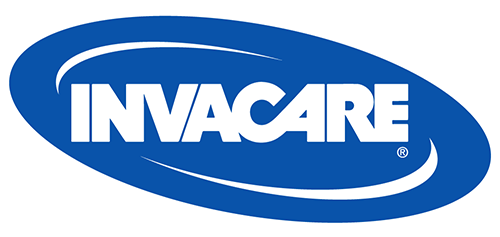ELYRIA, Ohio–(BUSINESS WIRE)–On November 9, 2006, the Centers for Medicare and Medicaid Services (CMS) released revisions to previously announced reimbursement levels for power wheelchairs scheduled to take effect on November 15, 2006. Compared to the previously announced fee schedule, the changes will significantly improve access to the medically appropriate power mobility devices (PMD) for disabled consumers of custom rehab products.
The revised fees are significantly higher for many commonly used codes than the set of fees released on October 2, 2006, particularly in the area of Group 3 (custom rehab) PMDs. In addition, the fee for the most commonly provided standard geriatric mobility (Group 2) PMD will also increase somewhat by approximately $300 compared to the fees announced in October, but are still 28% below prevailing prices. The new fee schedule for PMDs will still take effect on November 15, 2006, as previously announced.
“Invacare is pleased that CMS listened to the serious concerns and issues associated with the impact that the October 2, 2006 fees for power mobility devices would have on consumer access to these devices,” said A. Malachi Mixon, III, chairman and chief executive officer of Invacare. “The October 2 fees illustrate the fatal flaws inherent in CMS using the gap-fill method to establish new fees for any products. We look forward to working with CMS to develop a new method to establish fees for new codes that will ensure appropriate and continuing beneficiary access. We also look forward to working with CMS to revise their documentation standards which currently require providers to obtain onerous levels of physician documentation for power wheelchair reimbursement.”
While there are significant improvements with the November 9, 2006 fees, there remain issues with several of the codes. For example, within Group 3 products, payment levels for products with single power and multiple power options will be paid at virtually the same rate. This is despite the fact that the Group 3 multiple power option products must include more expensive expandable electronics. In addition, there remain serious payment reductions on Group 2 consumer power products.
In a positive move, Invacare appreciates the fact that CMS eliminated Medicare fees for Group 4 and 5 chairs, items that are not typically paid for by the Medicare Program. State Medicaid programs will need to develop new fee schedules for codes in these two categories.
“It is amazing to see the industry come together to raise our concerns over the disastrous initial fee schedule. The tremendous support of disabled consumer advocate organizations, media and Members of Congress, including Ohio Senators and Representatives, working with CMS is what helped to make these changes happen. The revised fees in the area of custom rehab are significantly increased but generally lower than reimbursement levels today so that providers will still need to modify their business models to succeed. Consumer Power reimbursement levels, while increased from the original fee schedule, are still dramatically reduced from today’s level. These changes reduce the credit risk to Invacare in the custom rehab sector; however, credit risk to the Consumer Power sector remains,” continued Mixon.
Invacare (NYSE:IVC), headquartered in Elyria, Ohio, is the global leader in the manufacture and distribution of innovative home and long-term care medical products that promote recovery and active lifestyles. The company has 5,900 associates and markets its products in 80 countries around the world. For more information about the company and its products, visit Invacare’s website at www.invacare.com.
Contact:
Invacare
Investor Inquiries
Gregory C. Thompson, 440-329-6111
or
Media Inquiries
Lara L. Mahoney, 440-329-6393
